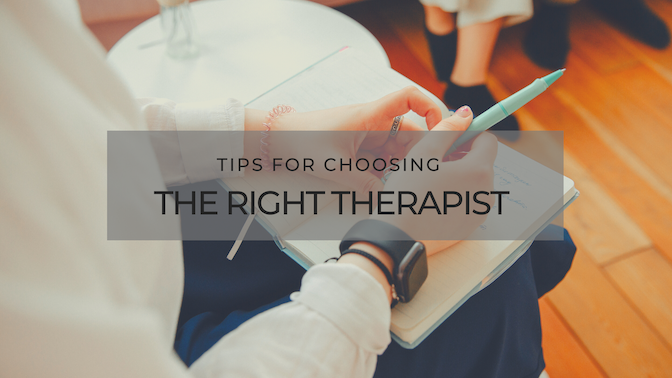Getting the right therapist can be challenging for many people. Many factors go into choosing a good therapist, such as the type of therapy you need and the area where you live.
A good therapist can help develop your confidence and skills in dealing with mental health issues, and finding someone who fits you perfectly is critical.
Getting professional help can help improve your mental health. It can be done through therapy and learning how to choose the right one can assist you in getting started.
Determine the Type of Therapy You Need
Before you start working with a good therapist, you must choose a type of therapy that fits your goals. There are many different types of treatment that you can choose from, and some therapists can provide multiple types.
Find Your Budget
The cost of therapy varies depending on the type of facility that you’re using. Online therapy is often cheaper than in-person sessions. Other providers have higher prices.
Before booking an appointment with a therapist, check with your insurance provider to see their coverage. Knowing how much you can afford will help you prioritize the providers who can work for you.
Talk To Your Doctor
According to the APA, a medical doctor can help find a therapist for you.
A medical doctor can also help connect you with the appropriate therapist for your specific needs. They can additionally help you find a person who accepts your insurance.
Ask People You Know
One of the easiest ways to find a good therapist is by asking your friends and family to recommend one. This will allow you to get a better idea of the quality of the therapist and if they are right for you.
Even if a therapist helps you with a loved one, it’s still not the best choice if the individual doesn’t meet your therapy goals and needs.
Look at Their Credentials
Before working with a new therapist, ensure the individual has the credentials.
The American Psychological Association also states that licensed therapists should be able to practice in the state where they live.
People who practice specific types of therapy may also have credentials related to that specialization.
Although a therapist’s title may not matter if they’re qualified to provide therapy in the specialty you’re interested in, you might still consider getting treatment from other professionals.
Consider the Communities They’re Part Of
While therapists are highly trained in understanding and compassion, having a local therapist or someone who works with individuals from your community can make a difference.
People tend to feel more comfortable talking about their experiences with people from marginalized or oppressed groups.
This is often the case for people who are part of the LGBTQ+ community. Having a therapist who is friendly toward members of this group can also make a significant difference.
Determine Your Therapy Goals
Before you start working with a therapist, you must identify your goals and needs. This will allow you to determine if therapy is the right option.
You should tell your therapist about your goals and needs once you have identified them. Remember that certain issues, such as stress and relationships, do not require specialized training.
You’re okay if you’re unsure what to focus on. You can still talk to a good therapist who can help you identify your goals and work toward them. In addition, they can help you develop confidence in handling emotional issues.
Ask Your Therapist Questions
Before you start working with a potential therapist, you must ask them about their experience and credentials. This will allow you to determine if the individual is the right fit for you.
Originally published on Herrick Lipton’s website.
